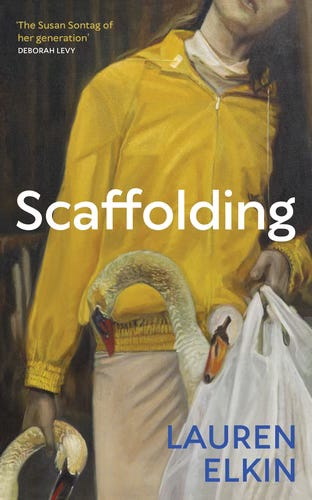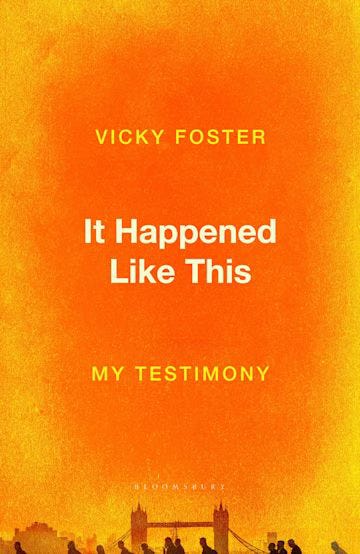There’s a time and a place for reading… and it’s always here and it’s always now.
I see reading as a fundamental part of my writing practice. After all, that’s where the urge to create invariably emerges from. I might not put pen to paper in any meaningful kind of way for months, but if I go more than a week without having a new novel or collection or non-fiction book perched on my bedside table and another stuffed into my bag (and possibly a third lined up on Audible), I know I’m having a dip in mood at best, a crisis at worst. ‘A Time and a Place’ isn’t a book review newsletter, but since reading makes up the majority of my writerly life, I feel compelled to touch on books pertinent to time and place once in a while. And this has been an excellent summer for new work.
Lauren Elkin’s ‘Scaffolding’ examines the communal life of Paris through the lens of female desire. The title (which Elkin says was ‘there from the start’, one of those titles that just insisted) cleverly evokes the ways in which the protagonists construct, deconstruct and reconstruct their lives as well as picking up on the idea of the city constantly being restored (‘into every Parisian life a little resurfacing must fall, expensive and inconvenient’).
North-east Paris. 2019. Psychoanalyst Anna is unable to work. She’s processing a recent miscarriage and the absence of her husband who has taken a job in London. She’s made friends with Clementine, a younger woman, part of a radical feminist collective called les colleuses who daub slogans on buildings under cover of night. These public statements form part of the fabric of the novel, reminiscent of George Perec’s obsession with recording everyday words on street signs and buses in pursuit of the ‘infraordinary’.
Elkin’s non-fiction books like ‘Flaneuse’ are geographically precise, historically rigorous, deliciously evocative, and that spirit pervades ‘Scaffolding’ too with its snapshot images of the peopled city: a stranger encountered in the bakery every single day who pays for Anna’s bread, a woman being pushed in a wheelchair with one foot sticking out of her blanket, neighbours framed unselfconsciously in their windows, a child dancing to Taylor Swift. The novel focuses on Anna’s inner world and growing fascination with her new friend Clem but through her story it attends graciously to the ways our desires overlap and intersect and conflict in a place like Paris and how the past bleeds into the present - at its centre, the book holds a compelling account of a couple, Florence and Henry, who lived in Anna’s apartment in 1972. There are ghosts everywhere. When I tried to call the book to mind after finishing it, the visual image that kept coming to mind was that of a window. Anna is always looking out:
‘The light in August brings the street together. When the sky goes deep blue, earlier than it has been, you can either turn on the light and decide it’s evening, or sit a while longer, watching everyone else turn on theirs, creating orange pools in the dusk spill. The light recedes from the street, replaced, slowly by windows like beacons.’
‘Scaffolding’ is intellectually stimulating - through Anna and Florence we undertake a tour of psychoanalysis and art history, through literature and music (everything from Lacan to Chris Krauss’ ‘I Love Dick’). Because it so fully inhabits character, the novel wears its theoretical preoccupations lightly. Described by the publisher as written ‘in the key of Eric Rohmer’, its mood is bittersweet, its prose elegant, its imagery memorable, its dialogue taut. The relationship between Anna and Clem is particularly nuanced and convincing. It resists easy resolution but suggests individual change. It is a love letter to the gradual. Through the overlapping lives of the characters we come to know Paris as a place of subconscious reckoning, wants that might destroy us, thirsts that can never be fully quenched.
Vicky Foster’s prose debut ‘It Happened Like This’ is a devastating testimony which - though different in genre and tone - also scrutinises the way stories collide in our cities, sometimes to destructive effect. It opens with a stark juxtaposition:
‘There is a man. He is running. He is running towards something, but from here we can’t see what. We do know there is danger, and he is running. Every muscle in his body tensed as he moves. Every sinew strained. He is not running away. He is running towards, and one hand, shifting at his side, curves around something cylindrical, carrying it with him as he moves.
Somewhere else there is a woman, doing something. But we don’t know yet what it is. Only that she exists, though sometimes she doubts it herself.’
Foster’s background as a poet is in evidence throughout the book and nowhere more so than this prologue section which acts as a striking, neat motif for the concerns of ‘It Happened Like This’. Her witnessing pivots around the notion that men act while women endure. Through her reframing of concepts like ‘heroism’ and ‘villainy’, Foster challenges our embedded cultural assumptions about what it means to harness power and which of these ways-of-surviving we should consider truly heroic.
Vicky was twenty-five when her abusive ex-partner, the father of her two sons, was murdered by two men in their hometown of Hull. Fifteen years later, having worked relentlessly to support her children and overcome PTSD and further misogynistic abuse, Vicky’s world was shattered again after one of her ex’s murderers hit the headlines. This time, he was being hailed as the ‘hero’ of the 2019 London Bridge terrorist attacks.
The book is brilliantly structured, comprised of short sections which move backwards and forwards in time, reflecting the way that - for the traumatised - ‘the past falls open anywhere’ (Michael Donaghy, Black Ice and Rain). Foster uses imaginary letters to powerful effect - a series of missives she will never send to her ex, to his murderer and to the politicians who praised that killer’s ‘gallantry’. But perhaps the most striking device is the spectral appearance of her grandmother, who comes to Vicky ‘as a reminder of fresh fag smoke, the faint aroma of the air freshener she used to keep at the bottom of the stairs… rolling the trim white body of a cigarette between the thick rings on her still-strong fingers…her words just move towards me across the room’. Vicky’s gran holds forth on the patriarchy, supply-and-demand capitalism and the story of Eve even though ‘she never spoke like this when she was alive.’:
‘I don’t want to speak because sometimes she disappears without warning, and I wouldn’t want it to be with a question like that hanging in the air. Not the one about the patriarchy; the one that lies behind it; why didn’t we ever talk like this when you were here? And the one that lies behind that; why didn’t you know this when you were here? And the one behind that; wouldn’t life have been easier then?’
It would be easy to call a memoir like this ‘courageous’ or ‘raw’. It is those things. But it is also shape-shifting, darkly witty, expertly-structured, alarming, unflinching and finely-wrought. Combining reportage, legal transcripts, domestic abuse statutory guidance and comments made on articles relevant to the narrative, the effect is almost like a radio play. It gets inside your head. And it is a haunting and compelling re-writing of a story, placing emphasis on the power of carrying on and refusing to be silenced.
‘The head of a sperm will repeatedly bludgeon the outer shell of an egg in order to fertilise it. The pre-cum will have softened it first. Chemical foreplay. I’m sure that might sound like hard work to some people. The hard work is done now. Fertilisation achieved. The fast, brutal shock of it. It’s not what I’d call hard work. The softening, the shedding, the smooth embedding. The blossoming, the blooming, the feeding and the keeping warm. The long, long unending stretch of it. Don’t talk to me about blood and grind’.
‘It Happened Like This’ should be required reading. No question about it.
I’ll write some further posts in future about reading highlights that deal with aspects of time-and-place, but for now some other notable recent titles I’ve loved include:
‘Goodlord’ by Ella Frears and ‘The Lodgers’ by Holly Pester - these are great to read alongside one another, both dealing with the highs and lows of precarious housing situations with flair, hilarity and poignancy.
‘Starve Acre’ by Andrew Michael Hurley - truly spine chilling!





I can't wait to read Vicky's book. I couldn't make the launch because I had Covid but I want to get it from her soon xx